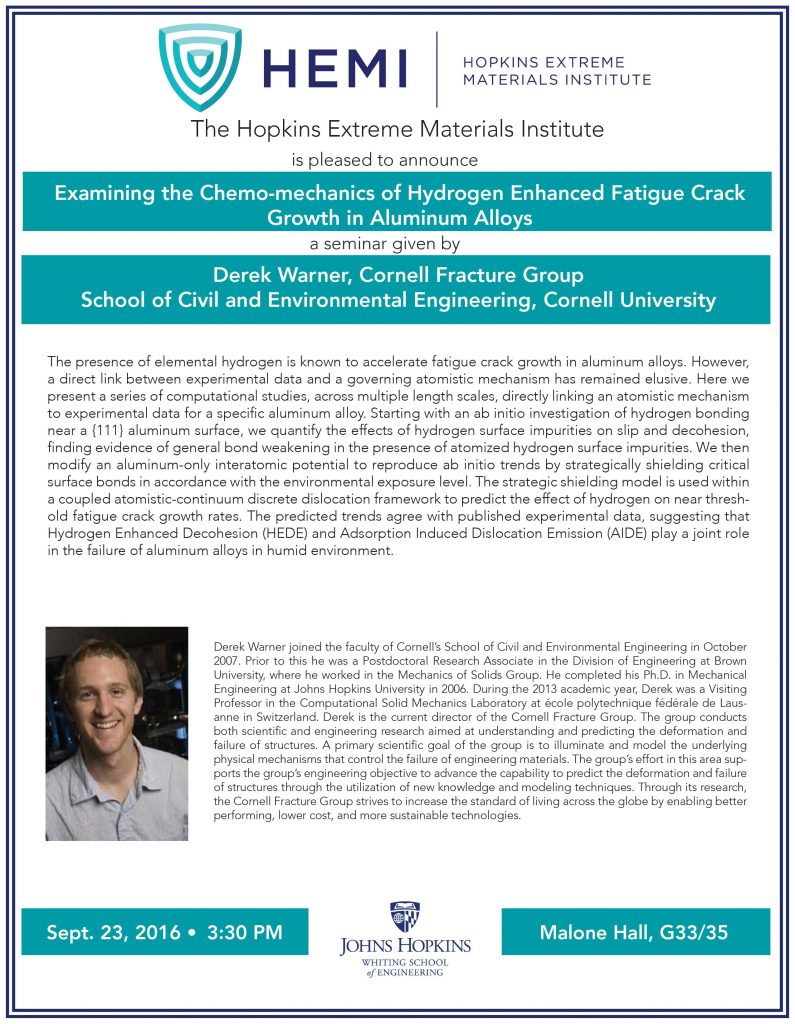September 23, 2016 @ 3:30 pm - 4:30 pm
Event Navigation
Examining the Chemo-mechanics of Hydrogen Enhanced Fatigue Crack Growth in Aluminum Alloys
Derek Warner, Cornell Fracture Group, School of Civil and Environmental Engineering, Cornell University
The presence of elemental hydrogen is known to accelerate fatigue crack growth in aluminum alloys. However, a direct link between experimental data and a governing atomistic mechanism has remained elusive. Here we present a series of computational studies, across multiple length scales, directly linking an atomistic mechanism to experimental data for a specific aluminum alloy. Starting with an ab initio investigation of hydrogen bonding near a {111} aluminum surface, we quantify the effects of hydrogen surface impurities on slip and decohesion, finding evidence of general bond weakening in the presence of atomized hydrogen surface impurities. We then modify an aluminum-only interatomic potential to reproduce ab initio trends by strategically shielding critical surface bonds in accordance with the environmental exposure level. The strategic shielding model is used within a coupled atomistic-continuum discrete dislocation framework to predict the effect of hydrogen on near threshold fatigue crack growth rates. The predicted trends agree with published experimental data, suggesting that Hydrogen Enhanced Decohesion (HEDE) and Adsorption Induced Dislocation Emission (AIDE) play a joint role in the failure of aluminum alloys in humid environment.
Seminar will begin at 3:30 PM in Malone Hall, Room G33/35.





